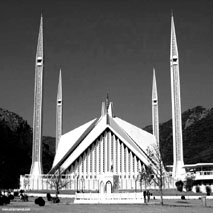Abdul Rasool Syed
BLACK lives matter is the latest slogan raised in America, the so-called champion of human rights, against the racial discrimination made to black community living there since generations. White supremacists’ prejudice and antipathy against the black folk have severely tarnished the image of Washington both at home and abroad. A country that is always found vocal for human rights violations is itself subjecting its minority to such a worst type of discrimination has raised many eye-brows in the world. George Floyd’s ruthless killing has brazenly exposed Uncle Sam that it does not do what it admonishes others to do. However, whenever such events of racism and apartheid take place, we need to look at the teachings of last divine religion (Islam) which stands for equality, justice, compassion and tolerance.
Before the advent of Islam, Arabian society at Makkah was not an egalitarian one; Arabs used to keep slaves for their daily chores and such slaves were subjected to inhuman treatment. Discrimination on the basis of colour, cast and creed were seen as normal. Affluence, tribal status, ethnicity and might determine the social status of a person. However, with the arrival of Islam, the Arabian society saw a revolutionary metamorphosis; a society once divided on the basis of socio-economic strata turned into a purely egalitarian society. One day, in Mecca, the Prophet Muhammad (SAW) dropped a bombshell on his followers: He told them that all people are created equal. “All humans are descended from Adam and Eve,” said the Last Prophet (SAW) in his last known public speech. “There is no superiority of an Arab over a non-Arab or of a non-Arab over an Arab and no superiority of a white person over a black person or of a black person over a white person, except on the basis of personal piety and righteousness.”
The Prophet’s message of egalitarianism tended to attract the “undesirables” – people from the margins of society. Early Muslims included young men from disadvantaged and less privileged class and slaves who were promised emancipation, embraced Islam. Even though Holy Prophet (SAW) himself hailed from an Arab background and the initial recipients of his message were the Arabs, once and for all, he demolished the artificial basis for any ethnic or racial pride by proclaiming that the Arabs had no superiority over the non-Arabs, or vice versa. The Holy Quran too is unequivocal in this regard as it addresses not the Arabs, the Muslims or the believers, but the mankind (an-nas) in the following verse: “O humankind! Reverence your Guardian-Lord, who created you from a single soul, created, of like nature, his mate, and from them twain scattered (like seeds) countless men and women; – Reverence Allah, through whom ye demand your mutual (rights), and (reverence) the wombs (that bore you): for Allah ever watches over you.” Quran: 4:1.
Early Islam also attracted non-Arabs, outsiders with little standing in traditional Arab society. These included Salman the Persian, who travelled to the Arabian Peninsula seeking religious truth, Suhayb the Greek, a trader and an enslaved Ethiopian named Bilal. All three rose to prominence in Islam during Muhammad’s (SAW) lifetime. Bilal’s much-improved fortunes and spiritual elevation, in particular, illustrate how the egalitarianism preached by Islam changed Arab society. An enslaved servant of a Meccan aristocrat named Umayya, Bilal was persecuted by his owner for embracing the new faith. Umayya would place a rock on Bilal’s chest, trying to choke the air out of his body so that he would abandon Islam. Moved by Bilal’s suffering and anguish, Muhammad’s (SAW) companion and close confidant Abu Bakr (R.A), got him free from his owner. Bilal was exceptionally close to Muhammad (SAW), too. In 622, the Prophet appointed him as the first person to give the public call to prayer in recognition of his melodious and pleasing voice and personal piety. Bilal would later marry an Arab woman from a respectable tribe – unthinkable for an enslaved African in the pre-Islamic period.
Islam also repudiates vulgar forms of nationalism that inculcates superiority of one’s own people over others on no moral basis. Various classifications of people based on groups, tribes, ethnicities or nationalities are quite natural, as it is a necessity for humanity as a social entity. However, to think others inferior in any way is strictly forbidden in Islam. Hence, the stock of man, the colour of his skin, the amount of wealth he has and the degree of prestige he enjoys have no bearing on the character and personality of the individual as far as Allah is concerned. The only distinction, which Allah recognizes is the distinction in piety; the only criterion, which Allah applies, is the criterion of goodness and spiritual excellence. In one Hadis, it is mentioned that the Prophet (SAW) was once asked: “who among men is most favoured by Allah?’ He (SAW) replied: “A man who does the most good to people.” [At-Tabaraani ] In the light of preceding discussion, it can safely be concluded that racism has no place in Islam. Islam stands for equality and promotes egalitarianism as the sole basis for the erection of any society. May this world give up the loathsome practice of racial discrimination by learning lessons from the teachings of Islam!
— The writer, an Advcate, based in Quetta Balochistan.









